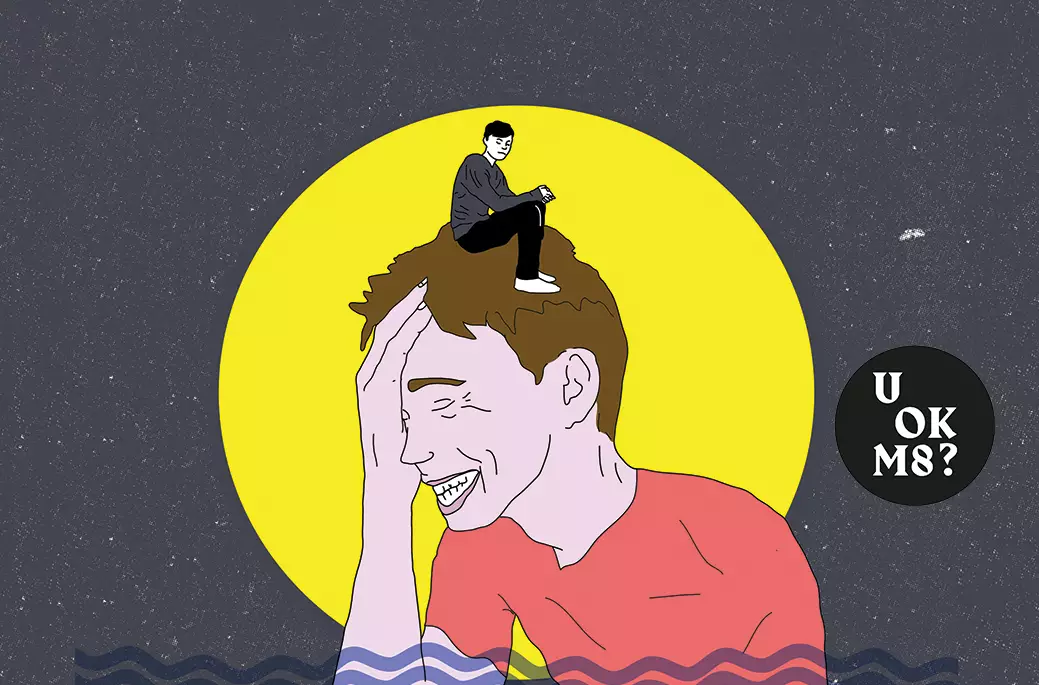
For years, comedians have made light of
serious issues. It's hardwired into the very heart of humanity to deflect
things that make us feel uncomfortable with laughter. It's a self-defence
mechanism, and it works.
When I was first diagnosed with acute anxiety, which led to my depression, I couldn't even muster a smile. So, just the thought of laughter was a complete pipe dream. It felt like I was going to be a slave to my illness for the rest of my life on this earth, which I hoped back then wasn't going to be a lengthy one.
I tried a vast array of therapies in a desperate attempt to combat my depression. Hypnotherapy, homeopathy, emotional freedom therapy, reiki. The list goes on. I was also foolishly stubborn, determined to get over what I was going through alone. Every time a new method didn't work, I fell deeper into my hole, defeated.

Credit: Joeo
I didn't want to burden anyone else with what I was fighting. My reluctance to open up ended with me hospitalised with chronic heart palpitations, dropping out of college and quitting my job. I'd lost the battle, but 12 years later, I'm winning the war.
Eventually, I came to the conclusion that fighting tooth and nail against the sickness dwelling inside me wasn't the way to beat it. The more respect I gave it by frantically thrashing against it, the more it controlled my life. Left unspoken and feared, my depression and anxiety gained power, dictating my actions and decisions.
It felt like I was going mad with this presence constantly in my head, casting its enormous, foreboding shadow over everything. It's like I was sharing my head with an irritating room-mate who wouldn't let me have fun. It was a room-mate who went on irrational, ridiculous rants at the most inconvenient moments. It would appear when I was trying to get to sleep, when I was on a date with a girl, when I was talking to my friends in the pub. However, once I accepted that it was there, and it wasn't leaving, I saw it for exactly what it was; an unwelcome guest in my head. So, I simply stopped giving it the time of day.

Credit: lifehack.org
This didn't work overnight; I still had very bad panic attacks. But the less I fought against them and the more I accepted them, trying to calmly surf their intense waves, the less frequently they would come. I would tell myself that it was just this dickhead piping up, trying to wreck my day. My niggling room-mate; nothing more than that.
I finally told my friends and family about what had been happening. They understood. Some of them had even been silently dealing with mental health issues, too. Talking about my experience with depression normalised it, and the relief I felt every time I opened up felt like small pockets of air in a sea I'd been drowning in for years. That small taste of freedom. I told more people what I was going through. I accepted it as a part of me. The moment I spoke up, I stopped being afraid of my condition. I took away its power.
Laughter returned to me and, when it did, I made my depression the butt of the joke. My Facebook feed became a constant stream of self-depreciating anecdotes and shared memes to which I related. It still looks the same today. When I share these statuses and photos, they get likes from people who feel, or have felt, the same. A small community of fucked up human beings, having a giggle at the expense of something that controlled them, and perhaps still does, but not in the same crippling way it once did.
We laugh and joke about the very thing that stopped us from laughing or joking. We learned together that it's okay to not be okay.
My niggling room-mate still knocks on the door every day. But I've changed the locks, and all my friends are with me. It doesn't stick around for long.
If any of this sounds familiar in any way, please talk about it with somebody.
Be brave. Talk about it.
Featured Image Credit: